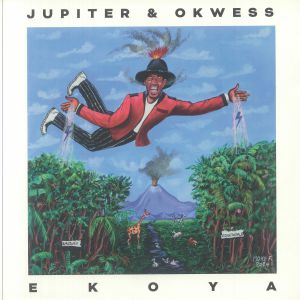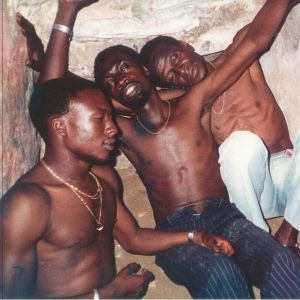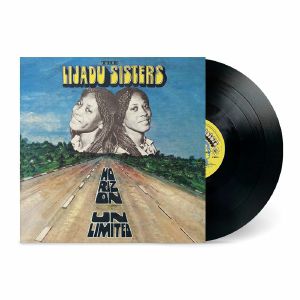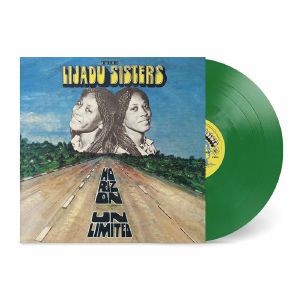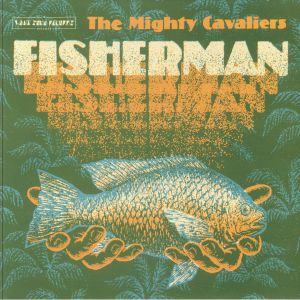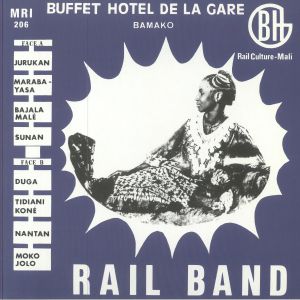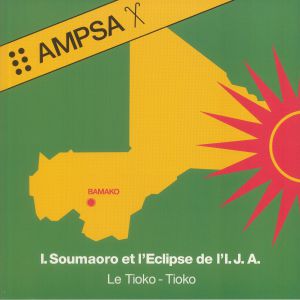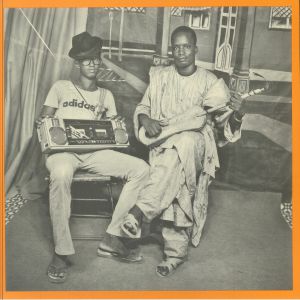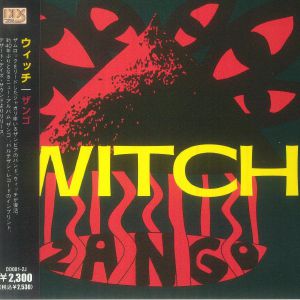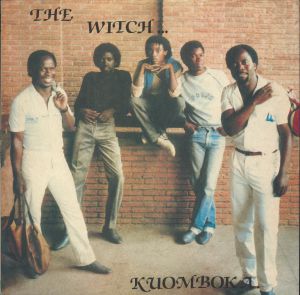Filter
在庫状況
音楽
アーティスト
レーベル
Featured
リリースタイトル
Back catalogue: Psych/Garage Rock
Juno's full catalogue of Psych/Garage Rock
アルバム
Avoude (LP)
Cat: LPWABB 190. Rel: 07 Nov 24
Review: Dogo du Togo & The Alagaa Beat Band bring a unique sound to West African music that blends psychedelic rock, traditional Togolese rhythms, voodoo-inspired melodies and infectious dance grooves. Led by Dogo, who dubs their style 'Alagaa Trance,' the band's music weaves hypnotic layers and vibrant beats that are both captivating and energising. Their much-anticipated album, Avoude, captures this powerful fusion and is set for release in November on the We Are Busy Bodies label and promises to transport you into a new world with its mix of cultural depth and rhythmic intensity.
… Read morePlayed by: AfroBase (Radio Chart), Sol Power All-Stars
in stock $27.98
Review: Ekoya is the fourth album from Jupiter & Okwess and it marks a new chapter in their sound as they embrace Congolese funk, rock, Afropop and Latin influences. This record was conceived during a South American tour and recorded in Mexico so reflects a cross-cultural fusion that's deeply rooted in African history and features collaborations with artists like Flavia Coelho and Mare Advertencia. Along the way, the music tackles themes of change, resilience and the global challenges we face so tracks like 'Selele' and 'Orgillo' fuse political commentary with big rhythms. Through a great mix of languages, rich instrumentation and powerful messages, Ekoya is a wonderfully worldly celebration.
… Read morePlayed by: Juno Recommends International
in stock $25.21
Played by: Juno Recommends International
in stock $27.43
Horizon Unlimited (reissue) (LP + insert)
Cat: NUM 653LP. Rel: 19 Sep 24
Review: Released in 1979 on Decca's Afrodisia imprint, Horizon Unlimited stands as a landmark in the Lijadu Sisters' discography. Produced by Fela Kuti's collaborator Odion Iruoje, and featuring BLO's Laolu Akins and Lemmy Jackson, this album blends raw funk with seductive electricity. The six tracks on this reissue are a masterclass in merging traditional rhythms with modern funk, exemplified in songs like 'Orere-Elejigbo,' 'Erora,' and 'Come On Home.' Each track opens with talking drums, weaving intricate percussion with fluid basslines and subtle synth tones. The Lijadu Sisters' harmonies remain the focal point, gliding over hypnotic grooves that maintain their freshness without becoming repetitive.
… Read more in stock $28.26
Horizon Unlimited (reissue) (green vinyl LP + insert)
Cat: NUM 653LPC2. Rel: 19 Sep 24
Review: The Lijadu Sisters and Numero Group have entered into a groundbreaking partnership focused on both reissue and reparation as a way of celebrating and reexamining the impact of the iconic artists. Identical twins Yeye Taiwo and the late Kehinde Lijadu were pioneers in Nigeria's cultural golden age who released five influential albums in the 1970s, thereby helping to shape their home nation's music for over 50 years. Their unique harmonies and innovative sound have inspired artists like David Byrne, Amaarae, and Jamie xx and first up in the reissue series is a remastered edition of their 1979 album Horizon Unlimited, featuring the hit 'Come On Home,' with their entire discography and previously unreleased material all to follow.
… Read morePlayed by: Juno Recommends International
in stock $29.91
Fisherman (reissue) (limited LP + insert + MP3 download code)
Cat: WSR 002. Rel: 03 Sep 24
Review: The second release from Want Some Records features the first album by The Mighty Cavaliers from Kenya. Though not released in its original sequence, this album is a stunning showcase of Kenyan funk-inspired music. Each band member contributed to the songwriting process during the making of the album which means it has resulted in a diverse and unique collection of tracks where each has its own distinct character. Originally released in 1976 and 1978 as Fisherman, this masterpiece is now being reissued for the third time in a very limited edition of 500 copies with a fresh cover design. It's an enduring favourite so don't sleep on this latest chance to cop it.
… Read morePlayed by: Juno Recommends International
in stock $38.23
Review: Rail Band are one of the most legendary bands in Malian musical history, and like all great legends their greatest moment was fleeting. This incredibly heavy, soulful and hard-grooving record was released in 1973, when the official orchestra of the Malian State Railway decided to enter the studio and lay down their potent blend of Western funk and surf, Mande tradition and Afro-Cuban percussion. The band was led by trumpet and sax player Tidiani Kone and Djelimady Tounkara on guitar, but in the iteration captured on this album they also featured future stars Salif Keita and Mory Kante on vocals. Shortly after, Keita and Kante eloped to embark on hugely successful solo careers, but for a brief moment in 1973 one of the greatest African guitar bands of all time created a perfect storm of West African storytelling and smoking hot grooves.
… Read morePlayed by: AfroBase (Radio Chart), Juno Recommends International
in stock $29.64
Le Tioko Tioko (LP + booklet)
Cat: MRBLP 242. Rel: 13 May 22
Played by: AfroBase (Radio Chart)
in stock $21.33
Review: The liberation of Mali from French rule in 1960 led to an explosive musical renaissance, and on this latest 2xLP compilation, Mr Bongo seek to remonstrate the nation's excellence in the face of much strife. After 1970, amid revived drives to document many national and regional music productions from the West African nation, Malian culture underwent a fertile transformation, with state-sponsored bands and orchestras able to record with sound engineers for the first time. Compiled by French writer and journalist Florent Mazzoleni and Mr Bongo's own David Buttle, we hear here the likes of Ousmane Kouyate & Ambassadeurs Internationaux, Rail Band, Les Messagers du Mali, Mystere Jazz de Tombouctou and many more, where bright, fuzz-packed tones whirl about our ears in serene squalls of balafon-driven funk, rumba, wassoulou, jeli and blues.
… Read morePlayed by: AfroBase (Radio Chart), Juno Recommends International
in stock $26.32
in stock $24.65
Review: Zamrock, anyone? Often stylised as W.I.T.C.H, WITCH were one of the leading musical lights of post-colonial Zambia, a band that rose to prominence during the early-1970s, a particularly fertile period in the East African nation during which hopes for the future were incredibly bright. Independence leading to the blossoming of homespun ideas, culture, art and creativity. The story takes a tragic turn as the decade reached its final years, the economy collapsing and policymakers turning increasingly authoritarian. Like many in the 'scene', WITCH would fade, almost into obscurity, although the psychedelic rock-hued legacy they left survived, and then experienced a resurgence from 2012, when they reformed amid renewed interest. Kuomboka represents the group at the height of their fame, an album that still sounds packed with optimism, despite insidious changes in the air when it landed in 1976.
… Read morePlayed by: Juno Recommends Funk
in stock $28.80

 USD
USD






